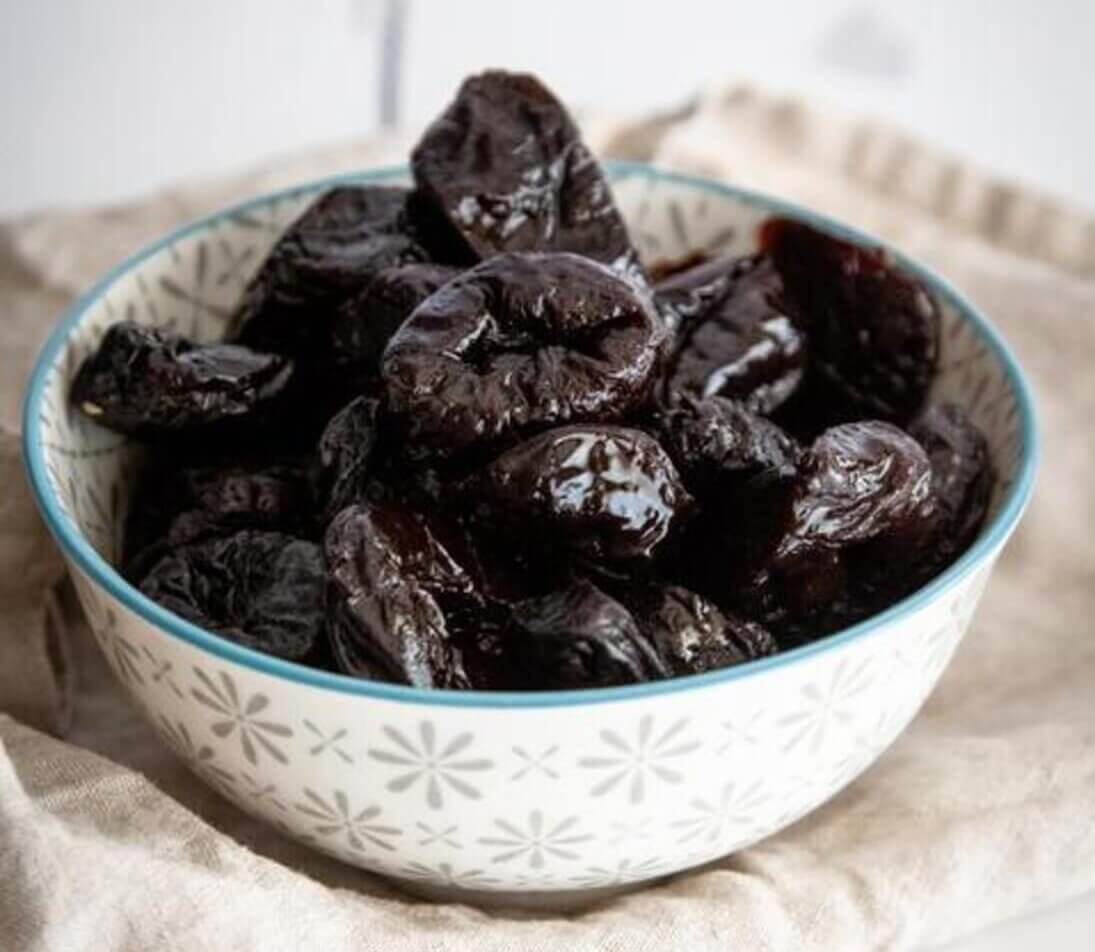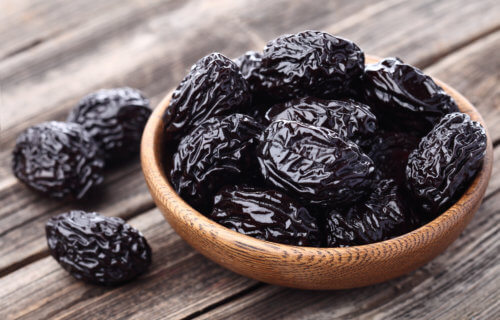STATE COLLEGE, Pa. — It might be time to add prunes to your diet. A new study shows that the superfood reduces inflammation and preserves bone health. Researchers say the daily consumption of prunes could potentially reduce inflammation markers associated with bone health and mitigate the effects of bone loss in postmenopausal women.
“Bone loss is a significant issue impacting more than 50 percent of women over the age of 50, and there is no cure,” says study principal investigator Dr. Mary Jane De Souza, a professor in the Department of Kinesiology at Penn State University. “While medications and hormone therapies are available, they often require lifelong management and come with risks. It’s important to have a better understanding of how non-pharmacological approaches – like lifestyle and dietary choices—can also impact the progression and mitigation of bone loss.”
The study’s findings demonstrate noteworthy reductions in inflammatory cytokines, which are proteins that regulate inflammation, and activated monocytes, a type of immune cell associated with chronic inflammation. These reductions were observed when participants incorporated 50 to 100 grams of prunes (approximately 5-12 prunes) into their daily diet. Specifically, reductions were observed in Tumor Necrosis Factor-α (TNF-α) following 50 grams of daily prune intake, and reductions in Interleukin-1β (IL-1β), Interleukin-6 (IL-6), Interleukin-8 (IL-8) secretions, as well as activated monocytes, with 100 grams of prune intake.
“These findings may be attributed to the abundance of bioactive compounds found in prunes, including vitamins, minerals, phenolic acids and polyphenols, which are likely acting synergistically to suppress activated monocytes and their secretion of bone-resorptive inflammatory cytokines,” explains study co-author Dr. Connie Rogers, the head of the Department of Nutritional Sciences at the University of Georgia, in a media release.

This study is part of a larger randomized controlled trial known as the PRUNE study, which explored immune, inflammatory, and oxidative stress markers related to the bone-protective effects of prunes in postmenopausal women. The PRUNE study involved 183 participants who were divided into three groups: a control group who did not eat prunes, a group consuming 50 grams of prunes daily, and a group consuming 100 grams of prunes daily. The participants followed the prescribed prune protocol for 12 months, with compliance monitored through daily logs.
Study participants also received daily calcium and vitamin D3 supplements to meet recommended dietary allowances. Measurements of immune, inflammatory, and oxidative stress markers were taken at the beginning and end of the 12-month intervention.
“These findings add to a growing body of research and interest investigating the role of ‘food as medicine’ and complement other studies I have conducted using the same data,” notes Dr. De Souza. “For example, the previous study I led showed connections between hip bone integrity and daily consumption of prunes — where postmenopausal women who did not eat prunes lost 1.5 percent of their hip bone density compared to women who ate five-to-six prunes daily. Collectively, these findings have significant practical importance given the prevalence of bone loss among this population.”
Donn Zea, executive director of the California Prune Board, emphasized the commitment to rigorous nutrition research.
“Our investment in the PRUNE study has led to many key publications and novel findings that can help improve public health and the understanding of the role foods may play in disease prevention and management,” says Zea. “We are deeply committed to the scientific rigor of our nutrition research program which provides a license to communicate how enjoying California Prunes can have an effect on health outcomes.”
The study is published in The Journal of Nutrition.
You might also be interested in:
- Eating prunes may help prevent bone loss in older women
- Prunes may be the secret weapon to prevent holiday weight gain
- 2 cannabis compounds may boost pain relief, speed up healing of fractured bones


I don’t believe this article. we can barely afford one meal let alone snacks.
I’m not perfect at it especially during Halloween through new years. But I don’t eat anything for breakfast. I take a multivitamin and some highly concentrated fish oil (yes that’s some calories) to start the day. I have coffee when I arrive at work after we go over our daily agenda. I put off lunch into the afternoon. I can usually wait until 2pm before I’m fairly hungry. I eat dinner around 6:30 and if I have a small treat or snack I don’t consume them after 8pm. That’s typically a 6 hour window of eating. It’s a habit I’ve developed over time and it causes me to deliberately eat well. I keep carbs to a minimum but I don’t always adhere to strict keto. COLD SHOWERS IN THE MORNING! Don’t be a bitch, freeze the bitch out of you and enjoy your blood flow and vigor even just a minute into it.
Then stop voting for Democrats who destroy our economy and sovereignty!